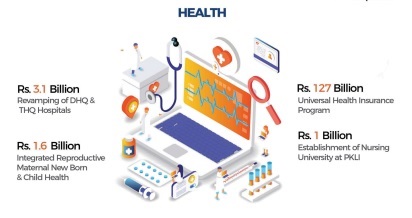
LAHORE: Provincial Minister Sardar Awais Leghari is all set to present annual budget of Punjab for financial year 2022-23 on Monday (today).
According to reports, the total outlay of the budget is expected to be around Rs 3 trillion, with Rs680 billion set aside for the Annual Development Programme (ADP). The overall volume of the budget is expected to be 22 percent more than the previous budget. Last year, the PTI-led Punjab government had presented a Rs 2.653trillion budget, with an allocation of Rs 560 billion for the ADP.
According to a document available with Daily Times, in the ADP for FY 2022-23, Rs 56.7 billion have been earmarked for education sector, Rs 174.9 billion for health sector, Rs 11.9 billion for water and sanitation, Rs 1.6 billion for social welfare, Rs 19.5 billion for agriculture, livestock and food, Rs 12.5 billion for industries, commerce, investment and skill development, Rs 80.7 billion for roads, Rs 21.3 billion for urban development, Rs 5 billion for energy sector and Rs 28 billion for planning and development. A huge amount of Rs 154.5 billion has been set aside for special programmes and public partnership.
According to the document, allocation for social sector in FY 2022-23 has been increased by 33% as compared to that in FY 2021-22, 17% for education sector, 79% for health, 34% for roads, and 13% increase has been witnessed in allocation for the infrastructure development.
Earlier, a Finance Department spokesperson confirmed that the provincial budget would target the poor segments of society in provision of maximum fiscal relief to them. “The government is not going to impose new tax but will continue with special concessions and incentives given in the past. The government has planned to launch a special aid package to control the inflation, while steps will be taken to control the price of edible items alongside increasing the purchasing power of the commoners,” the spokesperson said.
“Different schemes will be introduced to reduce the energy bills by its efficient use . These steps will not only reduce the load shedding but also curtail the electricity bills. Further, to minimize the hardships of the businesses, trade and commoners due to energy crisis, the government has decided to continue tax relaxations and exemptions given during the last two years,” the spokesperson said.


